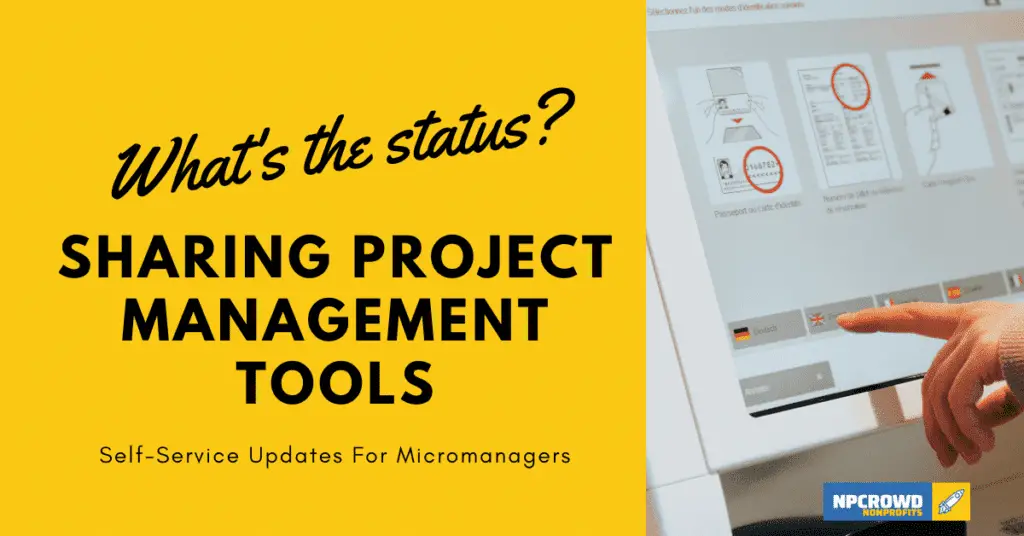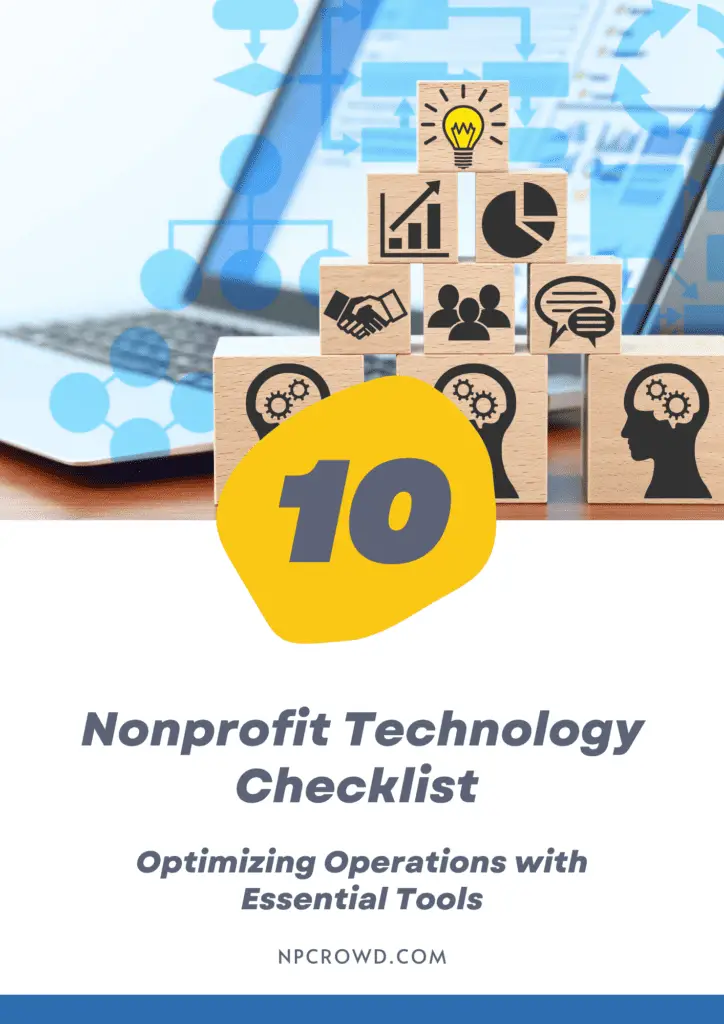Micromanaging Executive Director – 6 Strategies To Win
Disclaimer: This post may contain affiliate links. These links, if used and purchases made, we may earn a small commission. These affiliate programs do not impact the recommendations we make or the resources we refer you to. Our focus is on providing you the best resources for your nonprofit journey.
Is your Executive Director over your shoulder daily and not only setting goals but telling you each step you need to perform to accomplish the goal?I know first-hand how difficult this can be, but we started working in the social impact, nonprofit space for a higher purpose, right?!?!
Let’s looks at 7 strategies that may help you move from feeling micromanaged to being accountable and communicative as a trusted team member.
Recently, we were engaged in a conversation in a Facebook group regarding the topic of micromanaging executive directors. This could apply to any leader in a nonprofit, government agency or for-profit business.
Below we’ve included specific quotes from nonprofit leaders that are helpful and reinforce our recommended strategies.
Is It Micromanaging Or Grant Reporting? (Gain Perspective)

Most of my employees have to account for their time on a log because we have to submit their timesheets for reimbursement from a grant. Could that be the reason?
Kim – Facebook Group Member
If you feel like you are being micromanaged because you need to log your activities and hours, it may not be what it seems. Some grants require reporting time allocations and hours for each employee where the grant funds are used.
Yup, it’s a pain in the rear, but it may be grant reporting requirements that are making you feel micromanaged. If that’s the case, take a step back and don’t judge your Executive Director (ED) as a micromanager just because they are doing what they need to in order to secure funding for your pay.
So, I recommend just being honest and asking the question of the need for reporting activities at such a granular level. If it turns out to be grant reporting requirements, then you can help develop a plan to make the reporting process as efficient as possible so it doesn’t take away from your productivity.
Maybe it’s not grant reporting, but perhaps another onus placed on the ED. You won’t know unless you ask.
Overcommunication To Build On
Over communicate. I had that situation once and I would just send them email updates regularly until they felt comfortable with the work I was doing. It seemed ridiculous and it did help.
Tom – Facebook Group Member
When you feel like you are being micromanaged, it can be frustrating. You may start to feel like your every move is being watched and that you can’t do anything without someone looking over your shoulder.
One way to combat this feeling is to overcommunicate. Keep your manager in the loop on everything that you are doing. Send them regular updates, even if it feels like you are oversharing. Not only communicate only when asked, but show initiative and be proactive in providing updates, sharing news, and communicating challenges with solutions.
This will help to build trust and understanding between you and your manager. They will see that you are doing your work and that you are being transparent about your activities.
A side effect of this approach is that you’ll be providing so much information, that they may eventually realize they don’t want so much information from you, asking you to reduce updates to be more specific and/or less frequent.
Establishing Trust Can Diminish Micro-Management
It’s definitely a trust issue and sometimes the conversation has to be framed exactly that way, I believe we have a trust gap. What can we do differently besides this spreadsheet to build trust?
Michelle – Facebook Group Member
When there is a lack of trust, it can often lead to micromanagement. The ED or manager may feel like they need to keep a close eye on what you are doing because they don’t trust that you will do the work properly. Remember, their butt may be on the line.
One way to combat this is to try to establish trust with your manager. Show them that you are reliable and that you can be trusted to do your work. Ask questions to understand their goals while interjecting your process into how you can help them achieve the desired outcomes.
Be open and honest with them about your work and your process frequently. Show them that you are willing to work with them to find a solution that works for both of you.
If you can establish trust, it will go a long way in reducing the feeling of micromanagement. Very commonly, as the leader learns they can count on you, the amount of detailed management they do will diminish. It’s fantastic to just be pointed toward the goal and report back along the way.
Use And Share Task and Project Tracking Tools

Our team just started using Asana a couple months ago and I’m in love. If anyone on our team, including our supervisor, has a question on the status of a specific task or if we need something from one another we just throw it straight in there. It’s cut down on so many impromptu meetings and email chains!
Kayla – Facebook Group Member
There is a variety of task and project tracking tools available that can help to reduce the feeling of micromanagement. These tools can be used to track tasks, deadlines, and progress. We even created a list of project management tools for you.
By using these tools, you can keep your manager up to date on your work without them having to constantly check in with you. They can simply look to see the latest status and updates at any time.
You can also use these tools to ask for clarification or feedback on tasks if they are actively using the tool as well. The benefit is their direction is now documented in one tool for you both to refer back to.
Some task tracking tools that you may want to consider using are Asana, Trello, and Basecamp. These are just a few of the many options that are available.
Prop Tips:
- Frequently update activities and statuses.
- Anticipate questions and answer before you’re asked
- Share the tool with your leader
- Creating a two-way street is helpful
- Train leader how to get answers daily in 60 seconds
- Make it quick and easy for the leader to find answers
- Ensure high level project status is available for leaders
- Don’t make them drill into details unless they want to
Goal Management vs. Task Management
the one leader that I have respected the most throughout my working life was the one that had an understanding between us, you tell me the goal and I’ll get us there. If I hit a bump in the road on the way, I’ll call you. We built a company from 50 to 900 employees by the time I left because that is what works.
Michelle – Facebook Group Member
Another way to reduce the feeling of micromanagement is to help your supervisor refocus on goal management rather than task management.
If your supervisor is focused on the goals, they will be less prone to tell you how to achieve it. But, it’s going to take some time before they will begin to change their approach.
To help your supervisor refocus on goals, you can provide them with regular updates on your progress. Show them how your work is helping to achieve the goals. If you run into challenges, communicate them along with your recommendation solution path and the reasons the solution works.
You can also ask them questions about the goals and what they expect to see from you. By understanding the goals, you will be better able to complete the tasks in a way that meets their expectations.
Keep Transparent Communication Consistently
One of the best ways to reduce the feeling of micromanagement is to keep a consistent and open cadence of communication. This means being transparent about your work, your process, and your challenges.
It also means being patient and understanding that your supervisor may need more information than you are used to providing. They may need more frequent updates or more detail in your reports.
The key is to keep the communication lines open. Ask questions when you are unclear about something. Seek clarification when you need it. And, bring solutions to the table when you run into problems.
If you can keep the communication channels open, it will go a long way in reducing the feeling of micromanagement.
Be patient. Earning trust and shifting the management style of managers and executives will not happen overnight. Bring your “A” game, meet committments, communicate proactively, and answer questions before they are asked.
Tom Lucas
Run Not Walk

If you have tried all of the above tips and you are still feeling micromanaged, it may be time to consider looking for a new organization.
Some leaders simply will not trust others. They will fail to delegate well and this will hinder organizational growth. If you have been patient and you have looked carefully, you may find that this is the case.
In this situation, it may be best to look for a new opportunity where you will be able to thrive and grow. But, you’ll do so knowing you really did try to help them trust you, but you cannot change others, only yourself.
Run towards something, not away!
Tom Lucas
One of the best pieces of advice I’ve heard, experienced, and used is to be sure you are not running away from something, but rather take time to run towards something.
That means don’t just quit because you don’t like being micromanaged. Instead, keep plugging away while you search for the next opportunity that will allow you to thrive.
Wrap Up
If you are feeling micromanaged, it is important to take a step back and assess the situation. Try to understand the reasons why you are feeling this way.
There may be a perfectly good reason why your supervisor is asking for more information or more frequent updates. Or, there may be a trust issue that you need to work on.
Whatever the reason, there are a few things that you can do to reduce the feeling of micromanagement. By following the tips above, you can help to build trust, establish communication, and refocus on goals.
If you find that you are still feeling micromanaged after trying these tips, it may be time to consider looking for a new organization.







